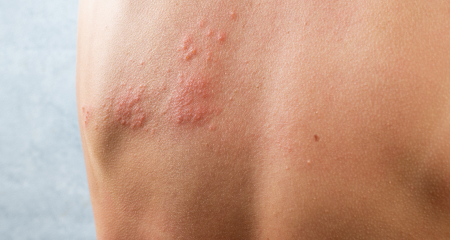
Shingles is a painful condition that usually presents as a localized rash with blisters and burning on one side of the face or body. It commonly presents after the age of 50, although people of all ages in North Richland Hills can be affected. Shingles is caused by a re-activation of the chicken pox virus which is acquired during childhood. After recovering from chicken pox, the virus resides in the spinal cord and can become reactivated as “shingles” later in life.
hingles, also known as herpes zoster, is a painful skin rash caused by the varicella-zoster virus, the same virus responsible for chickenpox. People who have had chickenpox—or, less commonly, its vaccine—are at risk of developing shingles.
Shingles occurs when the dormant virus reactivates in certain nerves within the body. It typically affects individuals over 50 and those with weakened immune systems, including people with cancer, organ transplants, autoimmune diseases, or HIV. Although it’s possible to have shingles more than once, this is uncommon.
Shingles itself does not spread from person to person. However, if someone without immunity to chickenpox (either from the illness or vaccine) is exposed to a person with shingles, they can develop chickenpox.
Prescription antiviral medications, such as valacyclovir or acyclovir, are most effective when started within 72 hours of initial symptoms. This can help reduce the duration and severity of the rash and lower the risk of complications, including long-term pain.
If you suspect you have shingles, please contact our office to schedule an appointment with one of our clinicians.
